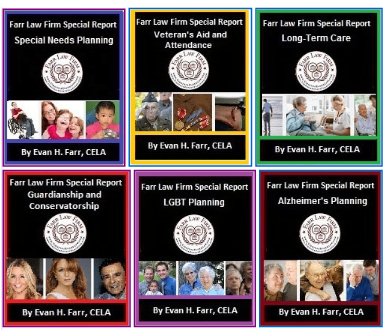How Caregivers Can Collect Social Security Benefits and Reduce Work Hours
If you cannot view the image below, please read the article on our blog.

Q. My mother had a stroke and really needs my help until we can find other arrangements. I’m afraid I’ll lose my job and wind up unemployed if I take time off work to care for her. Do you know if I have any rights under the Family Medical Leave Act (FMLA)?
A. Millions of family members leave the workforce every year to take care of loved ones. They take months off of work, and some ultimately become full-time unpaid family caregivers, often exhausting their own savings to care for a family member. In many cases, for their self-sacrifice and devotion, they are sadly penalized by losing pay and Social Security benefits.
Before you quit your job, it is important to learn about your options as a caregiver and what is out there to help you get the support you need. In addition, there may be a way to avoid a big reduction in Social Security benefits when you retire because you took care of a loved one. Below are details on options for while you are still working, and if you need to quit to care for your mother full-time.
The Family and Medical Leave Act (FMLA)
The Family and Medical Leave Act (FMLA), a federal law, provides certain employees in all states unpaid leave to care for themselves, a sick family member (limited to a spouse, child, or parent), or a new child, without losing their jobs or health insurance.
Under the FMLA, employees may take up to 12 weeks of leave in a 12-month period. Employers must comply with the FMLA if they have at least 50 employees for at least 20 weeks in the current or previous year, and other requirements, as described here.
Since its inception, FMLA has been used more than 100 million times, helping 35 million people keep their jobs and health insurance while they cared for a family health crisis or a new baby. But FMLA still has a long way to go. Because FMLA leave is generally unpaid with eligibility and use restrictions, many who qualify for it can’t afford to take it; others suffer financially when they do, and millions more who’d like to benefit from it are excluded.
Family Caregiver Support Program (FCSP)
Unfortunately, very few programs will pay family members or friends to provide care on a regular basis. However, sometimes caregiving families can obtain some relief for specific purposes, such as for respite care, to purchase goods and services that relate to their role as a caregiver, or for certain home health services.
The Family Caregiver Support Program (FCSP) is a federally-supported program under the Administration on Aging that provides services to help ease the financial burden of caregiving to a person 60 years and older.
According to the Administration on Aging, nationally, over 700,000 caregivers received services through the Family Caregiver Support Program. These services helped them better manage their caregiving responsibilities while ensuring their loved ones remained in the community for as long as possible.
Service highlights include the following:
•Access Assistance Services provided over 1 million contacts to caregivers helping them locate services from a variety of private and voluntary agencies.
•Counseling and Training Services were provided to over 125,000 caregivers with counseling, peer support groups, and training to help them better cope with the stresses of caregiving.
•Respite Care Services were provided to more than 64,000 caregivers with 6.8 million hours with temporary relief—at home, or in an adult day care or institutional setting—from their caregiving responsibilities.
This FCSP program is available through your local department on aging (in Fairfax County, Rappahanock area, Montgomery County, and DC). Services at these agencies include information and assistance; counseling and support groups; education and training; respite care to give you a break; and supplemental services, including the purchase of consumable supplies, emergency response systems and home modifications.
Social Security Caregiving Credit Act
The Social Security Caregiver Credit Act (H.R.3377) was introduced last July by Nita Lowey, a Congresswoman from NY, and is still pending in the House Ways and Means Committee. The purpose of this proposed Bill is to alleviate some of the financial burdens of people who face the unsettling prospect of trading off their retirement in order to care for a loved one. The bill would allow caregivers in this situation to
collect Social Security benefits and reduce work hours, so they can spend more caring for loved ones.
Lowey describes her legislation as a measure that would provide a “modest” boost in future Social Security benefits for qualifying individuals, including those who:
•Spend more than 80 hours a month providing unpaid care to a dependent relative or chronically dependent individual.
•Earn no more than the average national wage (around $45,000 for an individual).
A spokesperson with Lowey’s office explained the credit varies on an income-based “sliding scale,” so someone who does not work would receive a credit of around $22,000 a year, while someone who earns $33,000 would receive a credit of about $5,500. If they worked part time as well as served as a caregiver, the amount credited would be reduced. While not a complete answer to the problem, the bill would be of great help to those at the lower end of the earnings scale. We will
continue to keep you up-to-date with this bill's progress and hope for the best.
Caregivers Can Get Compensated
Many caregivers struggle with heavy financial responsibilities, especially if they’ve had to quit their jobs or reduce their hours to provide care. Imagine that you could get compensated for driving your father to the doctor, helping him get dressed, and administering his medications. I am happy to say that in some places, and in some cases, you can. Please read our blog post, “Can
Family Caregivers Get Compensated?” for ways your commitment to your mother can result in more money in your pocket — either from direct cash payments or federal income tax breaks.
Medicaid Planning in Virginia, Maryland, and DC
Medicaid planning can be started while you are still able to make legal and financial decisions, or can be initiated by an adult child acting as agent under a properly-drafted Power of Attorney, even if you are already in a nursing home or receiving other long-term care. In fact, the
majority of our Life Care Planning and Medicaid Asset Protection clients come to us when nursing home care is already in place or is imminent.
If you believe your mother may need long-term care in the not so distant future and if you or your mother have not done Long-Term Care Planning, Estate Planning, or Incapacity Planning (or had your planning documents reviewed in the past several years), please call us as soon as possible to make an appointment for a no-cost initial consultation:
Fairfax Medicaid Planning: 703-691-1888
Fredericksburg Medicaid Planning: 540-479-1435
Rockville Medicaid Planning: 301-519-8041
DC Medicaid Planning: 202-587-2797
------
Critter Corner: Should I Have a Caregiver Contract?

Dear Angel,
I will be quitting my job to care for my father next month. He will be paying me, since I have no other income to support myself. My dad used to have a caregiver through an agency, and the agency had a written contract. But as an individual, I’ve never had a contract for any job I’ve ever had. So in this situation, do you think we should have a contract between me and my dad?
Thanks for your input!
Kahn Tract
----
Dear Kahn,
If you regularly provide paid care to a parent or other family member, it's essential to have a properly-written caregiver agreement setting out the exact terms of your arrangement. This agreement (also known by other names, such as a personal care contract or a family care contract), must set out your duties as caregiver and the exact terms of your compensation.
However, you can’t just have your father pay you any amount you want. The amount you get paid, and the hours you work, and the type of care you provide must be approved in advance by a professional skilled in assessing the care needs of older adults, such as a Geriatric Care Manager / Aging Life Specialist. This contract is also not something that you should do on your own, or you
risk running afoul of Medicaid and IRS rules. Rather, this type of agreement should only be done as part of a comprehensive Asset Protection Plan prepared and supervised by an experienced Elder Law Attorney.
The following are reasons to have a properly-drafted caregiver agreement:
• It is important for Medicaid eligibility: The money a parent pays to a family caregiver, absent a properly-drafted caregiver agreement, will be deemed a gift by Medicaid, causing a period of ineligibility during which the parent will not qualify for Medicaid. How? At the time of a parent’s Medicaid application, Medicaid will total all the payments made to a family
caregiver, along with all other gifts, in the past 60 months and divide that total by the relevant “penalty divisor.” The quotient is the penalty period, which equals the number of months Medicaid will not pay for nursing-home care. In Northern Virginia the penalty divisor is $8,367, and in the rest of Virginia it’s $5,933. In DC, it’s $10,333, and in Maryland it’s $7,940. As an example of how this works, let’s say a parent pays a family caregiver
$60,000 over the course of three years and then applies for Medicaid. Without a proper caregiver contract in place, Medicaid would deem those payments as gifts, causing a penalty period of over 7 months in Northern Virginia ($60,000 divided by $8,367), over 10 months anywhere else in Virginia ($60,000 divided by $5,933), 7.5 months in Maryland, and 5.8 months in DC.
• It sets boundaries: A detailed caregiver agreement makes clear the extent of the services being provided by a family caregiver and the amount of money the caregiver is getting paid. A caregiver contract sets the understanding about the requirements and limits of the relationship.
• It explain tax ramifications: A well-drafted caregiver agreement makes clear the tax ramifications of the agreement, such as the fact that the child must be treated as an employee and the parent must be treated as a household employer and must withhold income taxes and payroll taxes.
• It helps avoid misunderstandings with other family members about the care being provided and the money changing hands. If the agreement doesn’t solve a particular disagreement with family members, you may be able to add something to the document, or change its terms, to address the problem.
• It offers security and peace of mind: A caregiver contract can offer family caregivers security that they will not suffer undue financial consequences. At the same time, the agreement can also offer the care recipient peace of mind that she or he has a caring advocate to manage care needs.
Paying a Family Caregiver is One Medicaid Asset Protection Strategy
Even though most family caregivers want to help, and feel a sense of duty to care for a loved one without pay, the fact is that it is a job – and a very difficult job with heavy time commitments and heavy physical and emotional responsibilities. If there is money with which to pay, family caregivers deserve to be paid (and to have their Social Security funded as household employees), but the payment arrangements must be done through a properly-drafted caregiver agreement that only an
experienced Elder Law firm, such as ours, can prepare. When done properly, a Family Caregiver Agreement can be a very good Medicaid Asset Protection Strategy – one of over two dozen different Medicaid Asset Protection Strategies available.
Caregiver Contracts at the Farr Law Firm
At the Farr Law Firm, we prepare caregiver contracts frequently as part of our Level 4 Planning / Life Care Planning / Medicaid Planning, and the contract is always supported by an independent evaluation that we obtain from a professional Geriatric Care Manager / Aging Life Specialist. But just because family care is being provided does not mean that a Caregiver Agreement is always the
best strategy to use. For example, sometimes it’s better for a child to provide the care for free and have the parent make a gift to the child in lieu of paying the child. Which combination of asset protection strategies is best for each family depends on numerous factors, which is why a Caregiver Agreement should only be done as part of a comprehensive Asset Protection Plan.
Hope this is helpful,
Angel
---
Sign up for our FREE Special Reports and get the answers to your burning questions! Just click on a cover
below!
|
----------

|
| Find Us |
|
|
| On the Blog |
|
|
Article Reprint Authorization
|
We invite you to reprint our articles to bring helpful content to your readers, with the following guidelines:
-The article is to be printed in its entirety;
-Additions, deletions, or changes in the text, title or illustrations may not be made;
-Credit is given to The Law Firm of Evan H. Farr, P.C., as the original source.
Example:
Reprinted with permission from:
The Law Firm of Evan H. Farr, P.C. Newsletter / Blog: www.EverythingElderLaw.com
1-800-399-FARR
|
|
Mailing Address
|
Fairfax:
10640 Main Street
Suite 200
Fairfax, VA 22030
703-691-1888
Fredericksburg:
511 Westwood Office Park
Fredericksburg, VA 22401
540-479-1435
Rockville, MD:
1 Research Court
Suite 450
Rockville MD 20850
301-519-8041
Washington, DC:
1425 K Street, NW
Suite 350
Washington, DC 20005
202-587-2797
|
|













